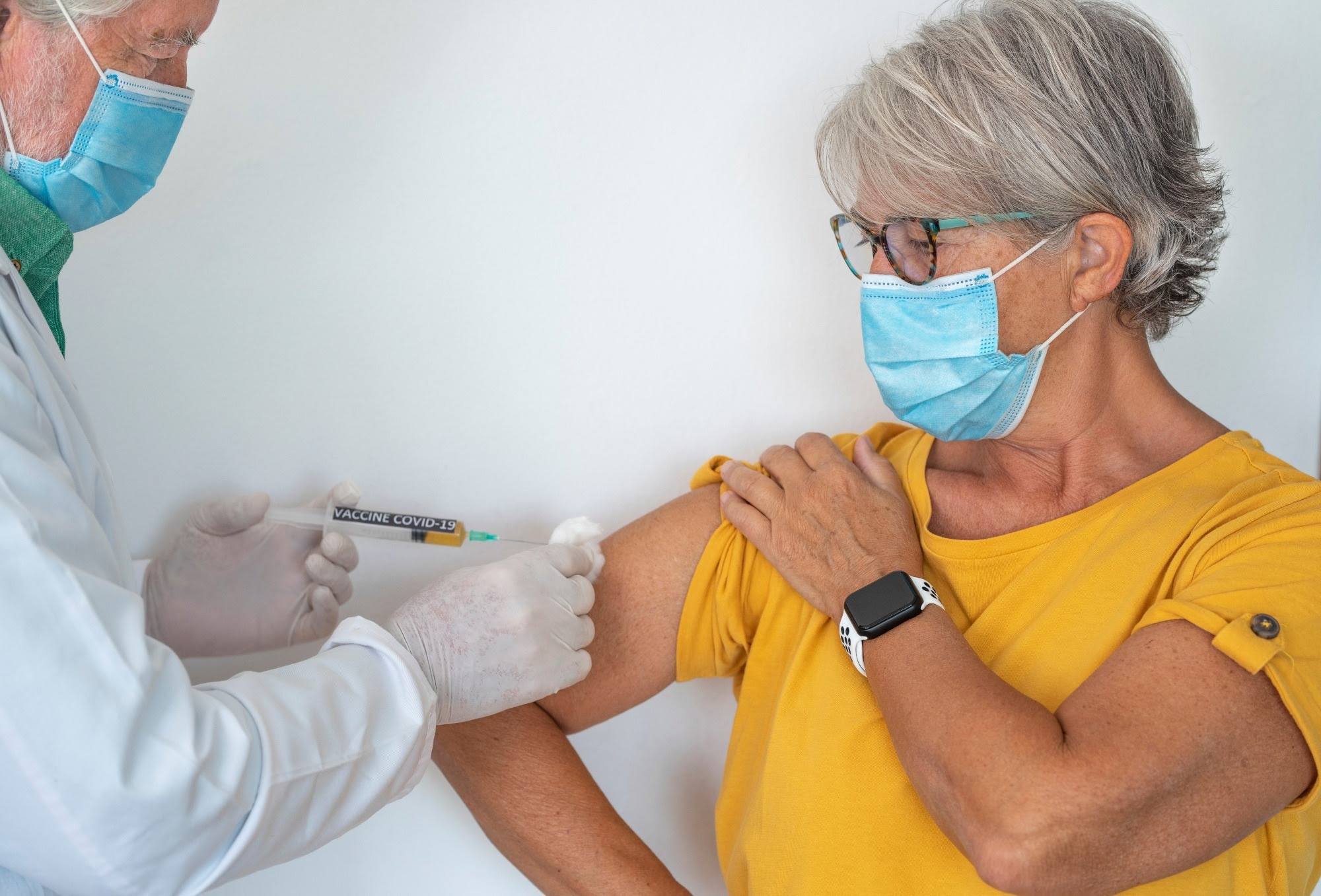By Pooja Toshniwal Paharia Sep 14 2022 Reviewed by Danielle Ellis, B.Sc.
In a recent study published in the Annals of Internal Medicine, researchers in Singapore estimated the effectiveness of the second booster (fourth dose) vaccination with messenger ribonucleic acid (mRNA) vaccines against symptomatic severe acute respiratory syndrome coronavirus 2 (SARS-CoV-2) infections with the SARS-CoV-2 Omicron variant and associated hospitalizations with among individuals aged ≥80 years.
The continual emergence of Omicron subvariants and the waning immune responses after the third vaccination (first booster) have prompted several nations to recommend second booster (fourth dose) vaccinations for persons at increased risk of COVID-19 severity outcomes. Despite high COVID-19 vaccination coverage, COVID-19 cases have resurged in Singapore in July 2022 due to Omicron BA.5 infections.

Study: Effectiveness of a Fourth Dose of COVID-19 mRNA Vaccine Against Omicron Variant Among Elderly People in Singapore. Image Credit: Lucigerma / Shutterstock
About the study
In the present study, researchers assessed the efficacy of second booster (fourth dose) mRNA COVID-19 vaccinations against BA.5 infections.
The study comprised individuals aged ≥80 years, residing in nursing homes, or those with increased susceptibility to COVID-19 severity who had received initial booster (third dose) vaccinations five months prior to the study commencement and were invited for the second booster (fourth dose) administration with Moderna’s mRNA-1273 or Pfizer-BioNTech’s BNT162b2 vaccines.
The trial used comprehensive healthcare administrative data from Singapore’s health ministry. Between April 6 and July 21, 2022, individuals who had been administered second booster vaccinations in recent times were 1:1 matched to controls (individuals who were not administered the second booster dose) based on sex, age, ethnicity, and type of residence (as a marker for socioeconomic status and to delineate those residing in nursing homes).
The team excluded individuals who had received non-mRNA COVID-19 vaccines or had prior COVID-19 history. Follow-up assessments were performed for each participant until a study outcome occurred, second booster receipt, or study termination. Vaccine effectiveness (VE) of fourth dose mRNA vaccinations against symptomatic rapid antigen tests-or PCR (polymerase chain reaction)-confirmed COVID-19 (VE-I), COVID-19 severity (VE-S), and associated hospital admission (VE-H).
SARS-CoV-2 testing was performed for all individuals who presented with acute pulmonary symptoms to healthcare facilities. Physicians evaluated the need for hospital admission based on risk factors and clinical presentations. COVID-19 cases were considered severe if they required supplemental oxygen, ICU (intensive care unit) admission, or led to death.
Results
In total, 40,030 individuals with 39,936 matched controls were analyzed, and 0.2% of individuals were unmatched. Individuals who received the second booster had a lesser risk of developing symptomatic COVID-19, severe COVID-19, and associated hospital admission, with an estimated VE of 22%, 63%, and 55%, respectively.
For symptomatic SARS-CoV-2 infections, among controls, the number of events and incidence per million person days were 2,527 and 1,141, respectively, which reduced after the second booster vaccination to 1,928 and 861, respectively. For COVID-19-associated hospitalizations, among controls, the number of events and incidence per million person days were 626 and 283, respectively, reduced after the second booster to 252 and 113, respectively.
For COVID-19 severity, among controls, the number of events and incidence per million person days were 115 and 52, respectively, which were reduced after the second booster to 40 and 18, respectively. Stratified analysis based on time elapsed since the previous COVID-19 vaccination demonstrated that VE-S and VE-H persisted at high values, whereas VE-I reduced. VE-I waning could have been observed due to the shift of variant predominance from Omicron BA.2 toward Omicron BA.5 during the study period.
Conclusions
Overall, the study findings showed that the second booster dose of mRNA-1273 or BNT162b2 lowered the risk of symptomatic COVID-19, associated hospitalizations, and severe SARS-CoV-2 infections in comparison to a single booster dose among individuals aged ≥80 years. It is important to note that the immune protection conferred by the fourth vaccination did not diminish two months after vaccination.
Lowered risks of COVID-19 severity and associated hospitalizations by the second booster vaccinations without waning of second booster-induced immunity facilitated mitigation of Omicron BA.5 infections, precluding the requirements of tightened infection control strategies as was enforced previously for Omicron BA.1 and BA.2 subvariants that dominated between January and April 2022.
Study limitations
The limitations of the present study included potential confounding from the presence of comorbidities, use of anti-SARS-CoV-2 therapeutic agents, and other factors that could affect the status of vaccination or COVID-19 severity. Further, the cases could have been under-detected due to asymptomatic or mild SARS-CoV-2 infections among individuals for which they did not seek medical care and increased rapid antigen testing and self-testing for SARS-CoV-2.
Furthermore, immunosuppressed individuals who had received three primary vaccinations and one booster vaccination were categorized as four-dose vaccinated adults. The team did not perform sequencing analysis to identify the causative Omicron subvariant for all COVID-19 cases.

Leave a Reply